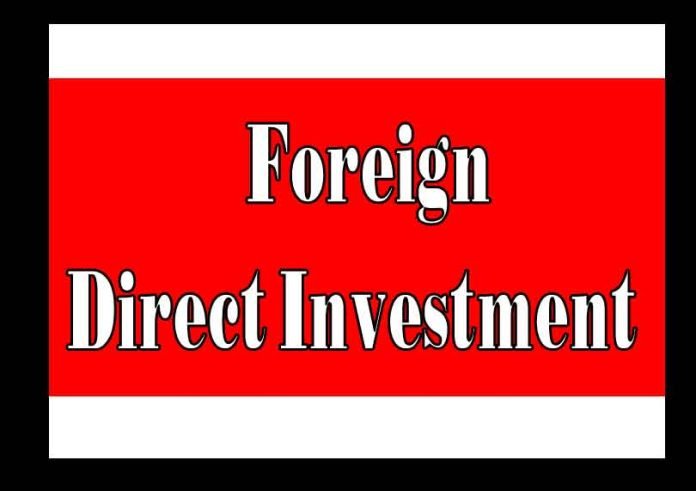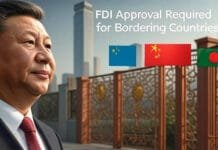The Ministry of Commerce and Industry plans to tighten FDI rules in the tobacco sector to curb advertising and smuggling. Discover the implications of these changes for investors, companies, and consumers.
Introduction
INVC NEWS
New Delhi : The world of tobacco regulation is buzzing with anticipation and speculation as the Ministry of Commerce and Industry prepares to propose stricter foreign direct investment (FDI) rules for the tobacco sector. Why, you ask? Well, it turns out that the government is keen on tightening the screws on FDI due to concerns about advertising and smuggling practices. If you’re wondering what this means for the industry and consumers, buckle up! We’re diving into the nitty-gritty of how these potential changes could reshape the landscape of tobacco investments and marketing.
The Current FDI Landscape in the Tobacco Sector
To grasp the gravity of the proposed changes, let’s first explore the existing FDI regulations in the tobacco sector. As of now:
- Manufacturing Restrictions: Foreign direct investment is a no-go for manufacturing tobacco cigars, cheroots, cigarillos, and cigarettes. In other words, if you’re looking to invest directly in tobacco production, you’re out of luck.
- Technology Cooperation: However, there’s a loophole of sorts. FDI is permitted in technology cooperation within the tobacco sector. This includes:
- Licenses for Franchises
- Trademarks
- Brand Names
- Management Contracts
This means that while foreign investors can’t produce tobacco directly, they can still invest in other aspects of the business.
Why the Need for Stricter FDI Rules?
So, what’s the big deal? Why is the Ministry considering these stricter rules now? Well, there are several factors at play:
Combatting Advertising and Promotion
One major concern is that companies might be exploiting the existing regulations to promote their products indirectly. Here’s a breakdown of the issue:
- Proxy Advertising: Companies are using indirect methods to advertise their tobacco products. This could include sponsoring events or using brands that promote tobacco without directly mentioning it.
- Brand Promotion: Foreign investments that are supposed to be limited to technology and management are being used to promote tobacco brands through various means, leading to increased visibility and potential misuse.
- Creating Awareness: Some companies are going to great lengths to build brand awareness, often skirting around the edges of the rules.
Smuggling and Illicit Trade
Another pressing issue is smuggling. When promotional activities are not tightly controlled, they can inadvertently contribute to illicit trade. Here’s how:
- Increased Demand: Enhanced brand promotion can lead to higher demand, which might result in an uptick in smuggling as consumers seek cheaper, illegal alternatives.
- Circumventing Rules: By exploiting loopholes in promotional activities, companies can create mechanisms that bypass the existing regulations, exacerbating the smuggling problem.
Proposed Changes to FDI Rules
In response to these issues, the Ministry of Commerce and Industry is contemplating several key changes:
Tighter Restrictions on Promotional Activities
The goal is to ensure that FDI restrictions extend beyond just manufacturing to include promotional activities. This means:
- Ban on Proxy Advertising: The new rules might explicitly prohibit indirect advertising techniques that circumvent existing restrictions.
- Stricter Brand Promotion Limits: Companies would face stricter regulations on how they can promote their brands, limiting the scope for circumventing rules through creative marketing strategies.
- Control Over Awareness Campaigns: Any campaign that creates awareness about tobacco brands would be closely monitored and potentially restricted.
Enhanced Oversight and Compliance
To ensure compliance with the new rules, the government is likely to:
- Strengthen Monitoring Mechanisms: There will be an increased focus on monitoring promotional activities and ensuring they adhere to the new guidelines.
- Implement More Severe Penalties: Companies that try to circumvent the rules could face harsher penalties, including fines and restrictions on their operations.
What This Means for the Tobacco Industry
The proposed tightening of FDI rules is set to have a significant impact on the tobacco industry. Here’s what stakeholders need to consider:
For Foreign Investors
- Limited Investment Opportunities: Foreign investors will have to navigate more stringent regulations and may find fewer opportunities in the tobacco sector.
- Increased Compliance Costs: Investors will need to invest more in compliance and legal advice to avoid penalties.
For Tobacco Companies
- Adaptation of Marketing Strategies: Companies will need to rethink their marketing and promotional strategies to align with the new regulations.
- Focus on Legal Channels: There will be a greater emphasis on adhering to legal investment and promotional channels to avoid complications.
For Consumers
- Potential for Reduced Smuggling: If successful, the new regulations could reduce the prevalence of smuggled tobacco products in the market.
- Impact on Brand Visibility: Reduced promotional activities might affect the visibility of tobacco brands, impacting consumer choices.
FAQs
Q1: What exactly will be prohibited under the new FDI rules?
A1: The new FDI rules will prohibit not only the manufacturing of tobacco products but also extend to limiting promotional activities, including indirect advertising and brand promotion strategies.
Q2: How will these changes affect foreign investors?
A2: Foreign investors may find fewer opportunities in the tobacco sector due to stricter regulations. They will need to ensure compliance with the new rules and may face higher costs associated with legal and compliance measures.
Q3: What measures will be taken to enforce the new rules?
A3: The government plans to enhance monitoring mechanisms and impose stricter penalties on companies that attempt to circumvent the new regulations.
Q4: How might these changes impact consumers?
A4: Consumers might see a reduction in smuggled tobacco products and a potential shift in brand visibility due to restricted promotional activities.
As the Ministry of Commerce and Industry mulls over tightening FDI rules in the tobacco sector, the proposed changes are poised to reshape the landscape significantly. With stricter regulations on promotional activities and enhanced oversight, the aim is clear: to curb advertising loopholes and combat smuggling. While these changes may pose challenges for foreign investors and tobacco companies, they hold the promise of a more controlled and regulated industry. Whether these new measures will effectively tackle the issues at hand remains to be seen, but one thing is for sure—regulation in the tobacco sector is about to get a lot tighter!














